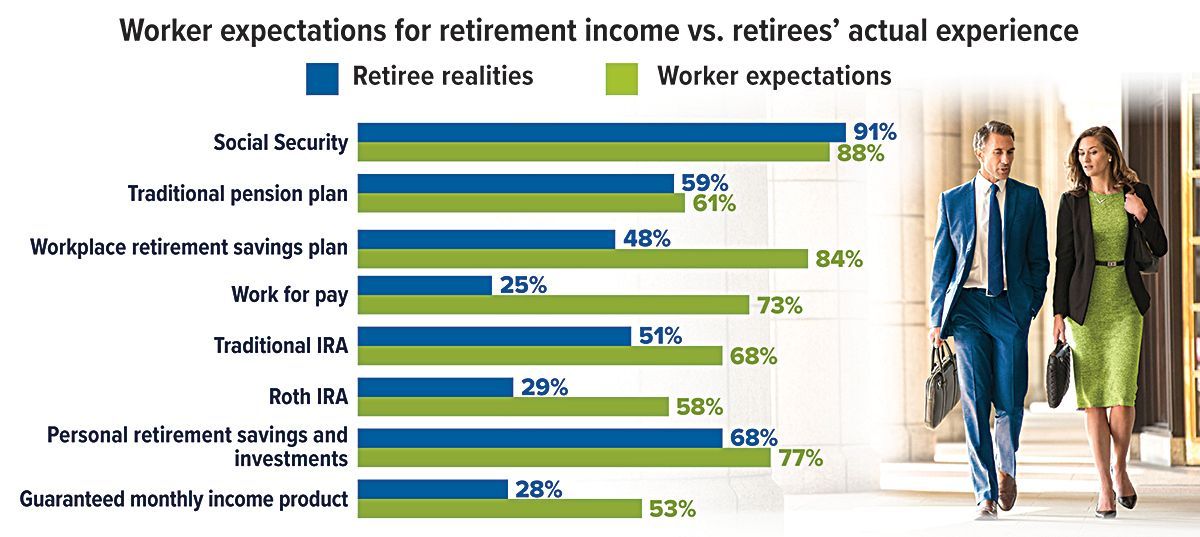Sources of Retirement Income: Worker Expectations vs. Retiree Realities
About 90% of retirees say they rely on Social Security, approximately the same as the percentage of workers who expect Social Security to help them meet their retirement income needs. Similarly, about 60% of workers expect a traditional pension plan to provide income, which is only slightly higher than the percentage of retirees who say a pension helps pay their bills. In other cases, worker expectations differ dramatically from retiree realities.

All Securities Through Money Concepts Capital Corp., Member FINRA / SIPC
11440 North Jog Road, Palm Beach Gardens, FL 33418 Phone: 561.472.2000
Copyright 2010 Money Concepts International Inc.
Investments are not FDIC or NCUA Insured
May Lose Value - No Bank or Credit Union Guarantee
This communication is strictly intended for individuals residing in the state(s) of MI. No offers may be made or accepted from any resident outside the specific states referenced.
Prepared by Broadridge Advisor Solutions Copyright 2020.











